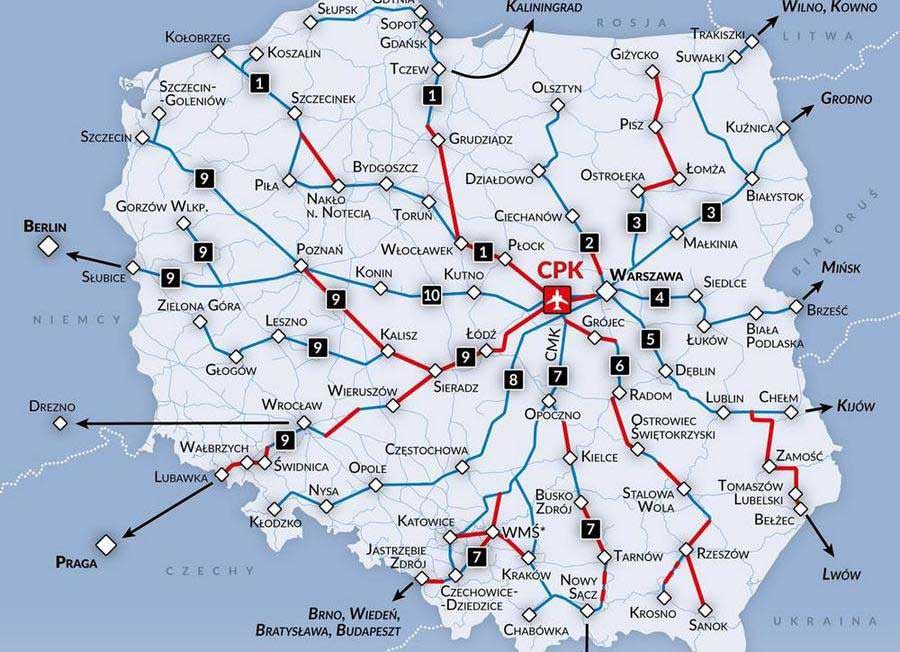The construction of a major transport hub in Poland, which was a major flagship policy of the outgoing conservative government, is at risk of being canceled by the incoming liberal coalition.
The parties that have won a majority in parliament in Poland and are likely to form the next government have been highly critical of the Central Communication Port (CPK) project and promised a thorough audit of it before deciding whether to continue.
Transport economist Paweł Rydzyński told the wPolityce.pl news outlet that it is highly unfortunate such a project, which is economic, developmental, and mobility-inducing, is being assessed purely through a political lens. He is skeptical whether just developing the Chopin Airport in Warsaw could ever be enough, even together with the two smaller airports of Warsaw-Modlin and Warsaw-Radom, to handle the potential increase in passenger traffic.
In 2022, Polish airports handled 41 million passengers who boarded 339,000 flights. According to forecasts from the civilian air traffic authority, in 2040 there will be 85 million passengers boarding 741,000 flights, an increase of more than 100 percent. However, some forecasts claim that the number of passengers may rise to 116 million boarding 961,000 flights.
Rydzyński highlighted that a lot of work has already been done on designing and preparing the CPK project. This is similar to preparing the construction of roads or railway lines; start-up costs and time are always considerable and should not be wasted for reasons of political whim.
The CPK project is coupled with an expansion of Poland’s railway network, which is essential for Poland’s transport development, Rydzyński said. He argued that Poland is still suffering from the fact that, during the partitions, the three separate powers had all followed different policies of railway expansion, creating a network that no longer fits Poland’s current needs. The plans for faster rail connections with the new airport were always perceived as an important part of the whole project of building a new airport.
A project of this size was never going to be cheap, so any small increase to improve land compensation, for instance, won’t change much in the cost, said Rydzyński.
“It is not megalomania for the fifth largest EU country, the largest airport of which ranks below 30th in the EU in terms of passengers carried, to construct something with greater capacity,” the expert said. All infrastructure carries a cost, but it is the benefits to the economy and society that must be taken into account, he added.





